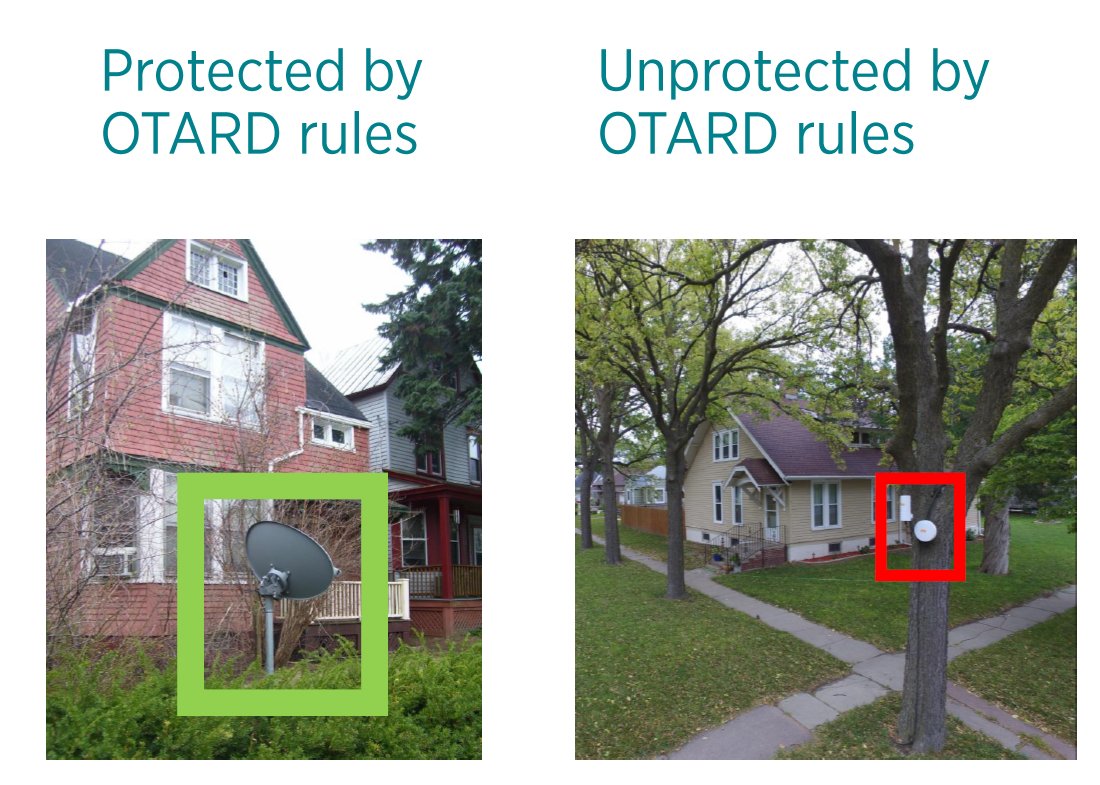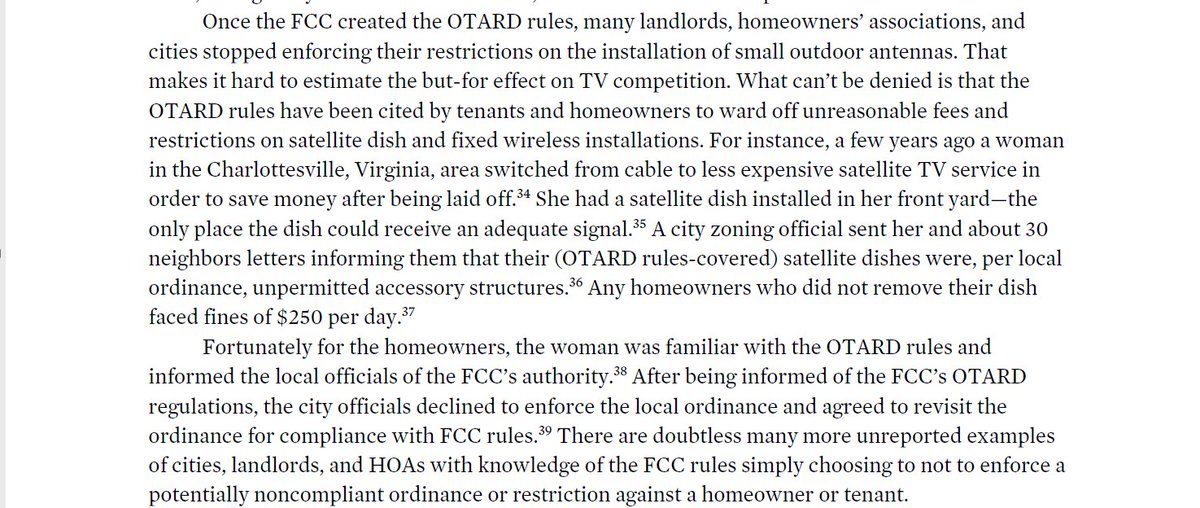Important rule change from the FCC that gives US households more broadband options. Small, outdoor broadband antennas installed on private property will be shielded from state & local restrictions & fees, much like satellite TV dishes are protected today: https://docs.fcc.gov/public/attachments/FCC-21-10A1.pdf
In the 1990s, states & cities often restricted or imposed fees on homeowners installing satellite TV dishes. Circa 1998, the FCC created "over-the-air-reception-device" (OTARD) rules, aka the "pizza box rules," to protect the installation of TV dishes less than 1 meter diameter.
In recent years, homeowners and tenants increasingly want to install small, outdoor broadband antennas on their property to bring competition to their neighborhood but face many of the same problems. Satellite dishes were protected but small, broadband transceivers were not.
Also, existing rules for "commingled service antennas" (offering voice and broadband) like most 5G small cells, allow installation on roadside infrastructure and the public right of way. Small broadband-only antennas, however, weren't protected and have difficulty finding sites.
Hard to know how much the OTARD rules helped expand satellite TV penetration but it helped. The FCC rules coincided with the installation of 20 million small dishes on private property & prevented unreasonable fees and restrictions. My comments to the FCC: https://ecfsapi.fcc.gov/file/10617017651628/Skorup%20-%20PIC%20-%20FCC%20OTARD%20Comment%20-%20v1.pdf
There are some exceptions. States & cities are able to restrict antenna installation if they can show a safety hazard or a historic preservation issue. Aside from that though, the rules protect homeowners & tenants when installing & self-provisioning small broadband antennas.
The rule change helps small and rural providers, like WISPs. Starry noted to the FCC that today "it takes on average 100 days to complete the permitting process for a single base station, which accounts for about 80% of the time that it spends in activating a site."
Starry says that with the rule change, they'll likely activate 25-30% more antenna sites in the next year, bringing a broadband option to 1 million additional households. Take projections with a grain of salt, but it's clear the new rules will improve coverage and competition.
It's not just WISPs and rural ISPs that benefit, the rules also seem to give more site options for installing outdoor WiFi, outdoor CBRS, mesh network nodes, and some types of 5G small cells.
The rules were opposed (much like the earlier satellite TV rules were opposed) by cities, based on statutory grounds and based on the argument that the rules represent an unconstitutional preemption of state powers re: property rights.
Though plausible, I don't find those arguments persuasive. Federal law protects state authority over cell towers & commingled services, not small antennas or broadband-only antennas. Further, the FCC has broad authority when it comes to devices used for interstate communications.

 Read on Twitter
Read on Twitter




